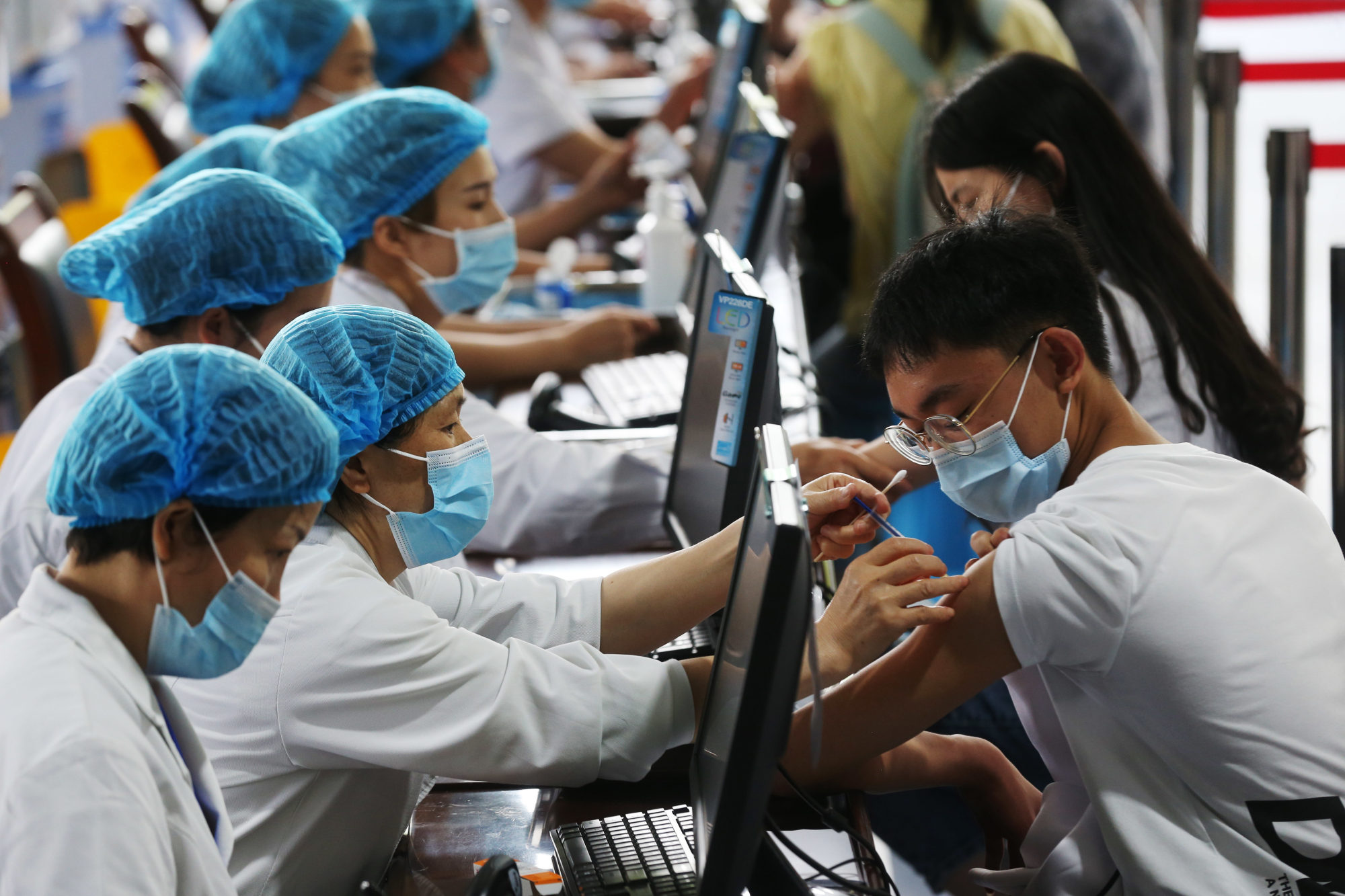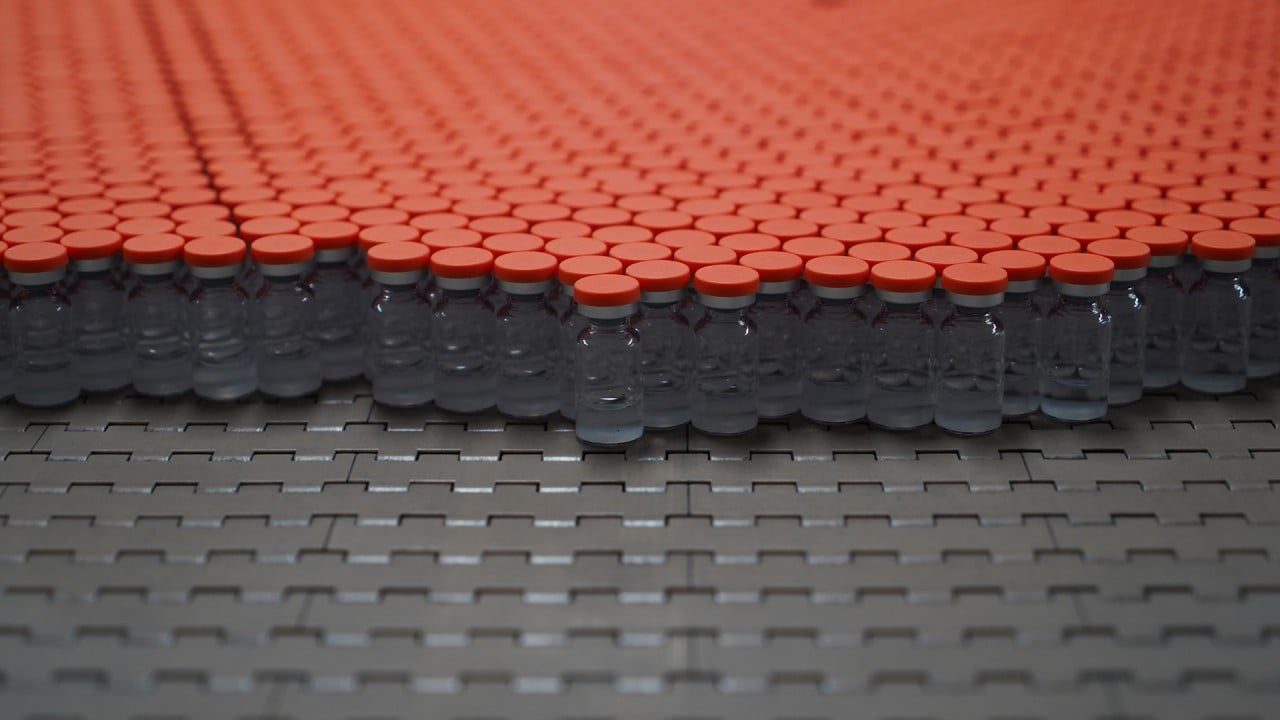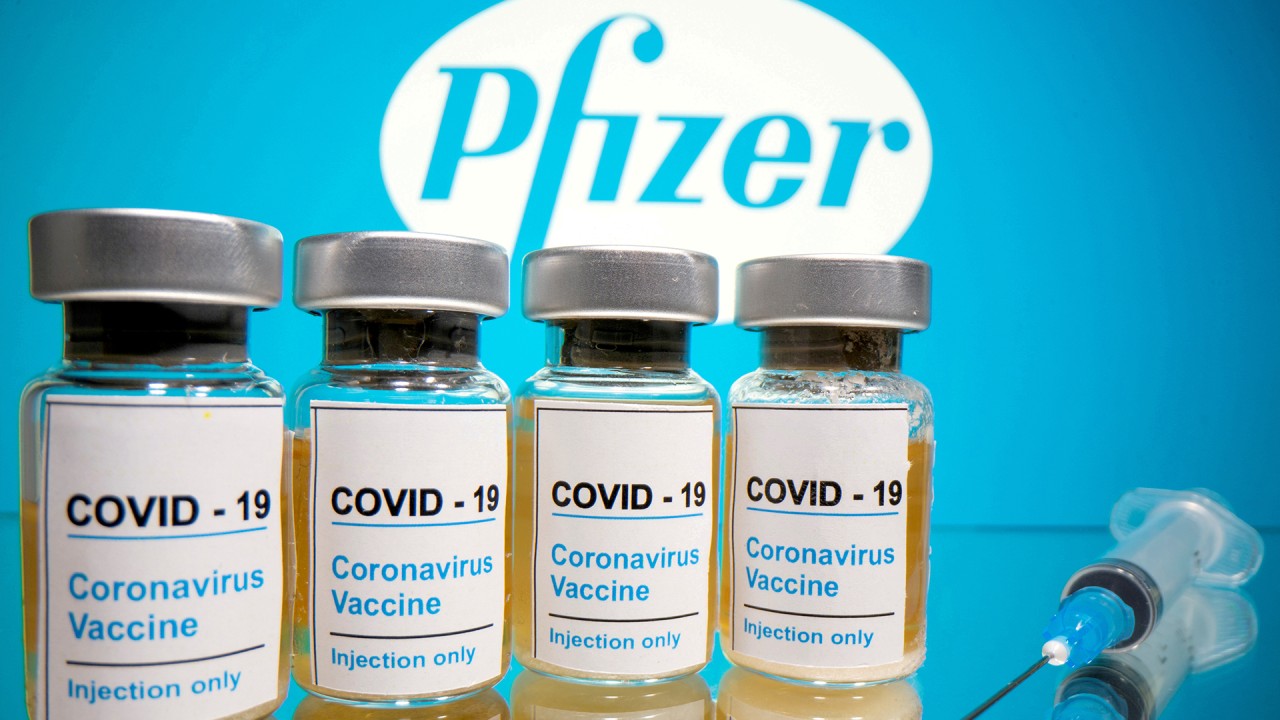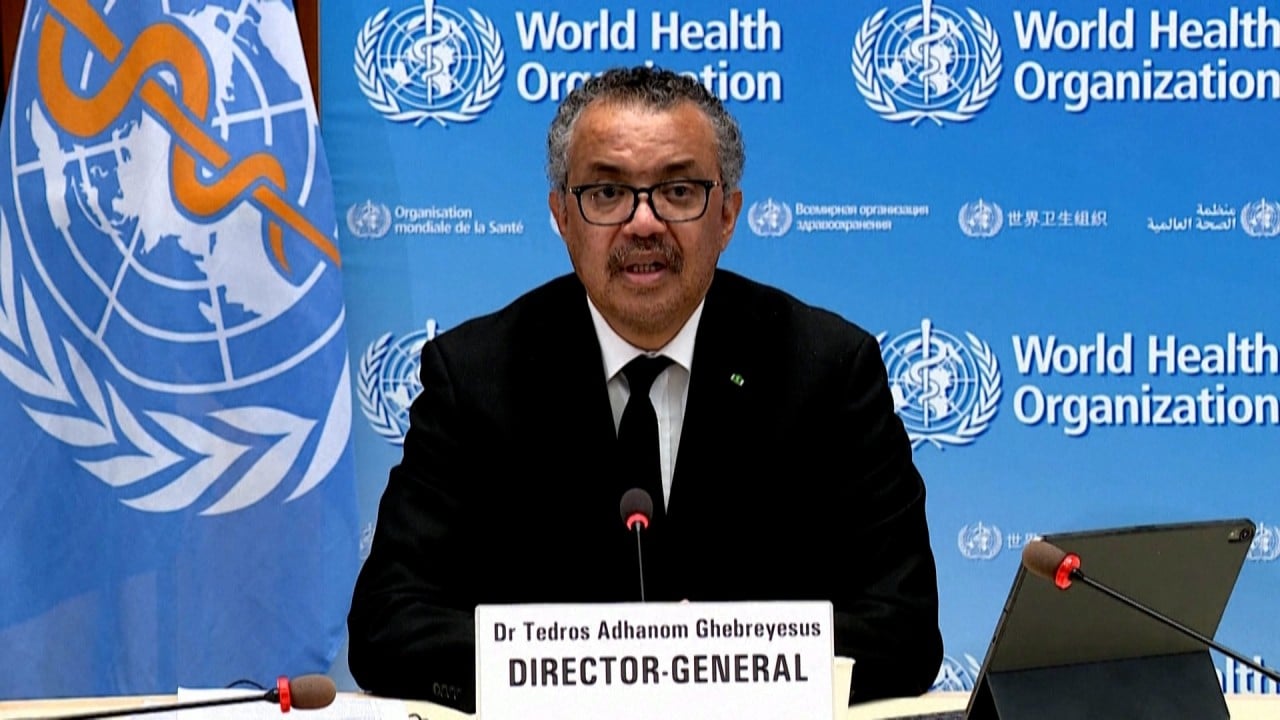
Will slow approval of BioNTech and other foreign vaccines block China from reopening its borders?
- 200,000 of 845,000 foreigners living in the mainland have had the jab but many may be holding out for a foreign shot
- Little data on Sinopharm, Sinovac efficacy in high-incidence areas as they were introduced when infectious rates ‘near zero’, expert says
This is the fourth in a series about China’s plans to reopen its borders amid the Covid-19 pandemic. In this instalment, Zhuang Pinghui looks into the status of China’s approvals of foreign vaccines.
Of the 845,000 foreigners living in mainland China, fewer than 25 per cent – or 200,000 – had been vaccinated against Covid-19 as of early June.
“A large percentage of members are taking the local vaccines but there’s also discussion about wanting to have the choice of a foreign vaccine, presumably the vaccine by BioNTech,” Ker Gibbs said.
“They do see the foreign vaccine giving them more flexibility with respect to travelling internationally, within Europe, within the US, going to venues that ask if you’re vaccinated or not. Over 50 countries have recognised the BioNTech vaccine as being safe and effective, but right now China is the outlier.”
But despite achieving a high vaccination rate compared to other countries, the ambitious roll-out – 945 million doses administered as of Wednesday – has only included jabs developed by domestic companies so far.
More than a year and a half after the pandemic first hit, many countries are looking at ways to loosen border controls to revive their economies. Most require vaccines to be approved either by their local governments, or recognised by the World Health Organization (WHO).
Which Covid-19 vaccine is the best? That’s a complicated question
Slow approvals
So far, companies producing three foreign vaccines that are widely used in other countries have struck deals with mainland firms for distribution and manufacturing. Chinese authorities have requested that more tests be conducted locally on the vaccines’ safety and efficacy before they are considered for launch.
Chinese authorities require foreign companies to conduct phase 1 and 2 trials for their vaccines in China.
BioNTech and Fosun launched phase 2 trials of their BNT162b2 vaccine, the same vaccine developed and being administered outside the Greater China area, last November to test its safety on a group of 960 volunteers.
The trials have been completed and data filed for regulatory consideration, although similar trials in the US and Germany already have concluded the vaccine is safe. Fosun secured a deal last December to import 100 million doses to China within the year.
Meanwhile, the Russian Direct Investment Fund, which bankrolled the Sputnik V vaccine from Russia, has signed deals with four mainland manufacturers – including Hualan Biological Bacterin, TopRidge Pharma, GeneSail Biotech and Shenzhen Yuanxing Gene-tech (China) – but no clinical trials have been announced.
Cautious hope
Chinese health authorities have been quiet about the long vaccine evaluation process, although experts have confirmed that data from foreign vaccine companies was being reviewed.
China seems to be in no hurry to have a foreign jab, with health officials anticipating a production capacity of 5 billion doses of local vaccines within the year and at least 15 million doses being administered daily in recent weeks.

A Chinese mRNA vaccine developer who declined to be named said the drug regulator was cautious about mRNA technology, which is used in BioNTech’s vaccine.
This technology had never been used in healthy people until the Covid-19 pandemic and Chinese regulators planned to use the studies to improve their knowledge and understanding of it, the developer said.
“They will compare data with foreign vaccines, and among domestic vaccines and foreign vaccines, and request more studies,” the developer said.
Britain takes swipe at countries using vaccine diplomacy to secure influence
At a virtual conference attended by BioNTech CEO Sahin and senior Shanghai officials in April, party secretary Li Qiang said he hoped BioNTech would increase its investment and expand its research and development cooperation in Shanghai, and bring more innovative technologies and cutting-edge projects to the city. This was read by many as a positive sign that the foreign vaccine would be approved.
Fosun Pharma chairman Wu Yifang told a shareholder meeting this month the approval related to the pharmaceutical had been largely completed, the requirements for subsequent conditional studies and clinical approval had been clarified, and the details of technical approval had been clearly communicated with the drug regulator.
“The approval process was carried out in an orderly and normal manner,” Wu was quoted by National Business Daily as saying.
Fosun announced last month the two companies were setting up a joint venture to make and sell the Covid-19 mRNA shot in China, with the manufacturing capacity to produce up to 1 billion doses a year.
Thomas Cueni, director general of the International Federation of Pharmaceutical Manufacturers and Associations, said such a joint venture would be important because voluntary collaboration and partnership between foreign and local firms could advance research in mRNA technology in China, whereas “an IP waiver doesn’t quite tell you how to get a vaccine”.
“Such a partnership will have a big impact on public health as we have seen in many countries with prevalence of disease,” Cueni said. “I expect the collaboration will be hugely important not only for the company Fosun, but also for the mRNA industry in China as a whole.”
Booster shots
Sahin said in an interview with the Global Times in May that the firm was confident about the final decision of the authorities based on the benefits the BioNTech vaccine could bring.
The unnamed Chinese mRNA vaccine developer said that even though China had vaccinated a large proportion of its population, prevention and control measures remained strict, undermining confidence in local vaccines.
China’s public health experts have repeatedly said the country could not afford to reopen its borders without establishing an immunity barrier through its mass vaccination campaign, which aims to have at least 70 per cent of the population vaccinated by the end of the year.
Another barrier to further research is that there are few active infections in China remaining to study.
“It is hard to find when herd immunity will be established in China, given they don’t have ongoing widespread epidemics there,” said Jennifer Bouey, a senior policy researcher at the Rand Corporation.
Yale School of Public Health dean Sten Vermund said more data was needed on how likely people inoculated with Sinopharm or Sinovac vaccines, but who are still infected with the coronavirus, would be to transmit it to others in high-incidence areas, as China’s Covid-19 infectious rates were already “near zero”.
“Only by doing clinical trials using the vaccine in higher incidence venues will it be known if the vaccines will be effective at reducing transmission to others, which is likely but not yet known,” he said.
On the other hand, Vermund said, studies of mRNA vaccines suggested recipients were both protected from the disease and unlikely to transmit it to others, even if they were infected.
Some researchers have suggested that better immunity could be achieved by mixing vaccines that used different technologies, and BioNTech’s vaccine is currently being offered as a booster shot in the United Arab Emirates and Bahrain to those initially immunised with Sinopharm vaccines.
“This is the opportunity for mRNA vaccines which should be the first choice because it’s quick and flexible for coronavirus variants,” the Chinese vaccine developer said.
Gao Fu, head of the Chinese Centre for Disease Control and Prevention, told an industry conference in April that authorities were considering allowing mixing vaccines of different technologies to boost immunity.
Travel after the pandemic: Chinese tourists will initially stay in Asia-Pacific, experts say, and head outdoors
Jeremy Lim, a professor at the National University of Singapore’s Saw Swee Hock School of Public Health, said the need for booster shots among those vaccinated in China would depend on whether their antibody levels were sufficiently high. Emerging variants were also an important factor affecting whether it was necessary to modify existing vaccines, he said.
“Whether the Chinese population will need a booster will really depend on the serological studies as well as the real-world surveillance of infections both symptomatic and asymptomatic,” Lim said. “The decision as to which booster should be driven by science and which vaccine based on clinical studies enables the mounting of the most robust immune response.”
Currently, no large-scale trials on mixing mRNA vaccines with inactivated vaccines have been registered.
It plans to study the safety and effectiveness of mixing CanSino and subunit protein vaccines by Anhui Zhifei Longcom, according to trials registration site Clinicaltrials.gov.











